Access to home during construction
pcxt
2 years ago
Featured Answer
Sort by:Oldest
Comments (49)
pwanna1
2 years agoRelated Discussions
Protecting tree roots during construction
Comments (16)Thanks again for your continuing thoughts. The lot in question is an acre in the city with an old house with much "deferred maintenance ". The old lady died in her late eighties and many of the trees were planted when she was a girl. The only thing holding up the house is the termite tubes. The project has not even left the CAD program. We are seeking out as much information as possible from as many sources as possible. Both arborists were professional and certified. The balloon analogy was an exaggeration but his view was extreme. I respect his opinions because he was obviously a true tree lover and I can relate to that, but he lacked practcality. He did suggest bringing material onto the property with a large crane to avoid driving over the roots. Every house in this area has driveways running within inches of large trees. Most of the would be arbutus but there are some redwoods as well. His contention was that such a driveway would kill the trees although local practice would tend to suggest otherwise. On our property we have several large arbutus by the street. Back from there are the old ornamental shrubs, many of which are so old they have been pruned into trees. There is a pittosporum well over thirty feet. Crepe myrtle, strawberry tree and others of the same vintage. There are New Zealand tea roses that have a trunk more than six inches in diameter. While I certainly concede that it is easier to cut down and then replant the beauty of this place is the mature trees and realistically I doubt we will be here more than ten years at the most. No where near enough time for planted trees to mature to anything approaching the beauty of what is here. The plan for the house at the moment is a kind of right angle z. At one time the design featured cut outs to accommodate the existing trees. That has since been modified as it seems most people are afraid to have trees close to there house. Personally i feel i can always build or repair a house. I can't build a tree. Much of the house will be on the same foot print as the old one but due to local design requirements the garage must be attached to the house which forces a very long hallway/ sunroom leading back to the garage area. It will probably end up as a kind of greenhouse. I did briefly consider designing it with an atrium around the biggest of the crepe myrtles but in addition to circumscribibg the roots I don't think it would get enough light. And just one more complicating factor 6 of these beautiful old trees are within 4 feet of the existing house. At the time this was built it seems that pouring the foundation on the ground was acceptable. That being said it seems to be surprisingly crack free even though the roots must criss cross the whole thing. Apparently to move them will require carefully tearing down the house and then trying to move them. I am not sure this is possible let alone practical. My current plan will be to sink metal posts roughly at the drip line of the most at risk trees, then fence them in. So a question after all this rambling. For the most part any roadway / driveway to be used by the crews will be constrained and I will cover it with a thick layer of chips (as suggested here) in areas where it is practical should I encourage vehicles to take different paths?...See MoreHow are you insuring your home during construction?
Comments (29)I would guess the OP and her DH would not have had difficulty getting a reasonable rate if they had gotten their policy before they had started construction, rather than looking for something now that they are 7 mos in. I believe our construction insurance would not prorate less than a year (second year they did prorate)? As to the insurer's remark about concerns the OP might be running out of money, insurers are good at imagining all kinds of risks :-) for example there is a 30-day waiting period for flood insurance....See MoreAccess to new construction
Comments (1)Yep, sure does....See MoreAt what point during a new construction should a home be appraised?
Comments (4)Just my experience. There was a plan and spec based appraisal and then a final-final appraisal. House needed to be done - like basically CO done. I think we actually got CO first because CO doesn't care about certain things. Sometimes appraisals are about zip code and square footage with not much else as inputs. Just becuase you put in $10k chandaliers doesn't necessarily make it appraise for more. I suspect you understand this of course but maybe there is less flexibility than you think there should be. Who knows but for sure no one should be building a custom house with a dependency on a full appraisal....See MoreILoveRed
2 years agopcxt
2 years agoMark Bischak, Architect
2 years agochispa
2 years agolast modified: 2 years agoMrs. S
2 years agoanj_p
2 years agoILoveRed
2 years agoanj_p
2 years agopcxt
2 years agoCharles Ross Homes
2 years agopcxt
2 years agochispa
2 years agolast modified: 2 years agoWestCoast Hopeful
2 years agopcxt
2 years agopcxt
2 years agoslong7050
2 years agoJazz Easy
2 years agoJeffrey R. Grenz, General Contractor
2 years agopcxt
2 years agoCharles Ross Homes
2 years agolast modified: 2 years agohaylo33
2 years agolast modified: 2 years agoBirch Island Design Build Group
2 years agoa1eventing
2 years agobooty bums
2 years agoCharles Ross Homes
2 years agobooty bums
2 years agopcxt
2 years agoMark Bischak, Architect
2 years agoUser
2 years agochispa
2 years agoCharles Ross Homes
2 years agoShola Akins
2 years agocpartist
2 years agolast modified: 2 years agoILoveRed
2 years agoworthy
2 years agolast modified: 2 years agoCharles Ross Homes
2 years agobooty bums
2 years agoOne Devoted Dame
2 years agocpartist
2 years agodoc5md
2 years agoCharles Ross Homes
2 years agoCharles Ross Homes
2 years agolast modified: 2 years agoOne Devoted Dame
2 years agoCharles Ross Homes
2 years agolast modified: 2 years agocpartist
2 years agoOne Devoted Dame
2 years agoMrs. S
2 years ago
Related Stories

HOUZZ TOURSHouzz Tour: Mexican Home Gets an All-Access Pass
Flush thresholds and ramps are just some of the universal design features that make this Cabo Pulmo home entirely wheelchair accessible
Full Story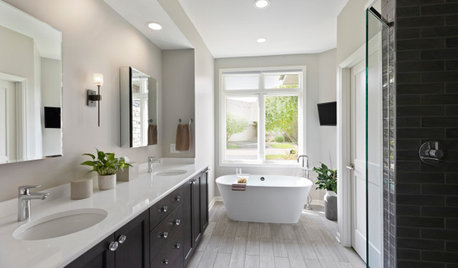
WORKING WITH PROS5 Steps for Hiring Home Pros During the Pandemic
Get assurances on these health and safety practices when choosing remodeling and design firms to handle your project
Full Story
HOUZZ TOURSHouzz Tour: 21st-Century Accessibility in a Traditional Home
Old-world charm and modern conveniences combine in this wheelchair-accessible house
Full Story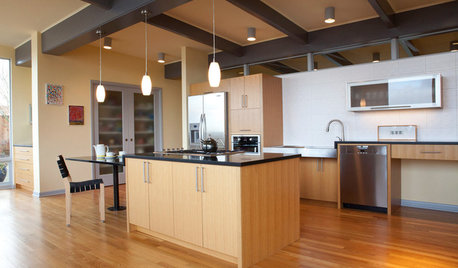
UNIVERSAL DESIGNHouzz Tour: Universal Design Makes a Midcentury Home Accessible
More space for wheelchairs, easier access to appliances and a curbless shower fit a Seattle family's needs
Full Story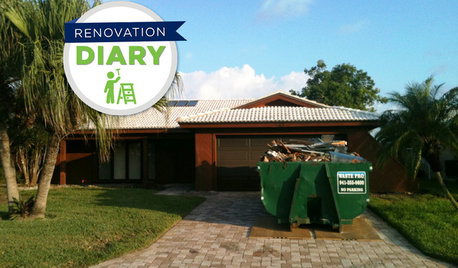
REMODELING GUIDESPlan Your Home Remodel: The Construction Phase
Renovation Diary, Part 3: The Dumpster arrives, and a little designing on the fly comes in handy
Full Story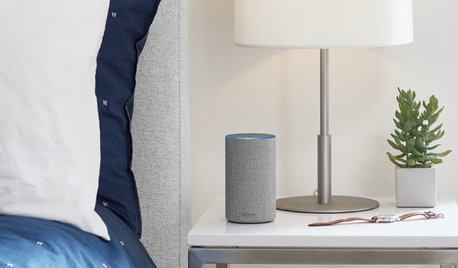
HOME TECHHow Smart Devices Make Homes More Accessible
Find out how one couple with a health challenge uses a smart speaker, and learn how tech can help with everyday tasks
Full Story
HOUZZ TOURSMy Houzz: Accessibility With Personality in an 1870 Home
Hand-painted murals and personal touches fill an accessible home with warmth and charm
Full Story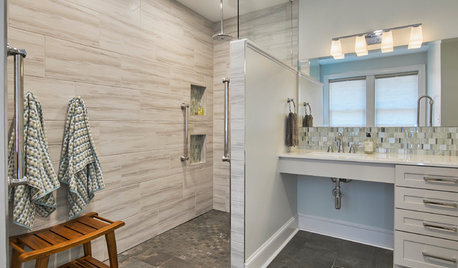
UNIVERSAL DESIGNIs Your Home Accessible for Aging in Place?
Review our checklist to find out if your house will work for you and your family as you get older
Full Story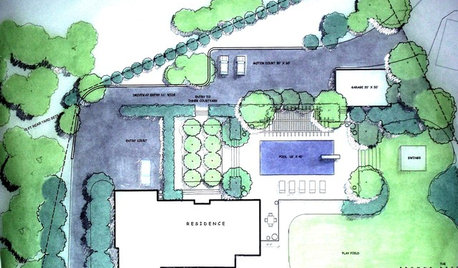
CONTRACTOR TIPSHow to Calculate a Home’s Square Footage
Understanding your home’s square footage requires more than just geometry
Full Story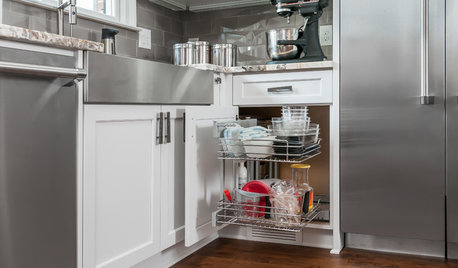
STORAGEHow a Pro Organizer Improved Her Own Home’s Storage
New kitchen drawers, an upgraded laundry workspace and extra garage storage create a more functional, organized space
Full Story


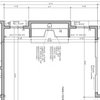

Annette Holbrook(z7a)